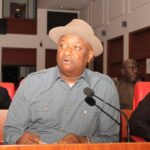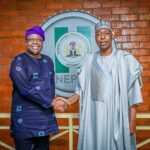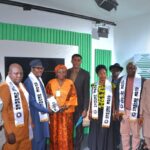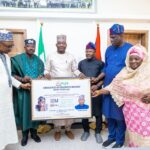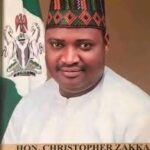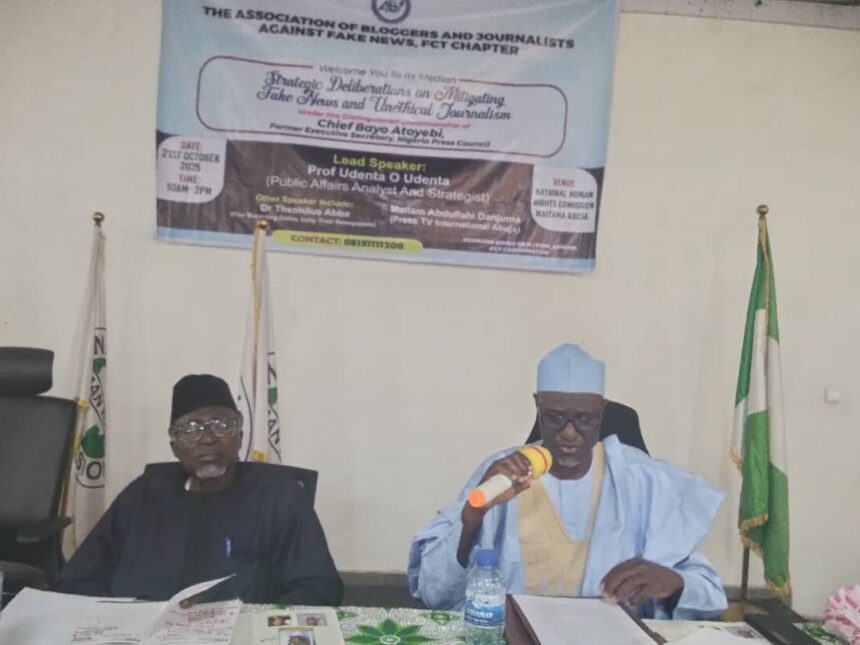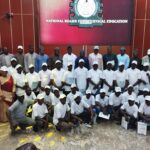By Chidi Ugwu
The National Human Rights Commission (NHRC) Auditorium in Maitama, Abuja, on Tuesday hosted a gathering of Nigeria’s leading media professionals, scholars, and regulators for the maiden edition of the Strategic Deliberations on Mitigating Fake News and Unethical Journalism, organised by the Association of Bloggers and Journalists Against Fake News, FCT Chapter.
The event, chaired by renowned media administrator and former Director-General of the National Broadcasting Commission (NBC), Dr. Bayo Atoyebi, brought together top experts including Dr. Theophilus Abbah, former Managing Editor of Daily Trust (represented by journalist Mr. Daniel Adaji), and veteran broadcaster Alhaji Danjuma Abdullahi of Press TV International, a former managerial officer at the Nigerian Television Authority (NTA).
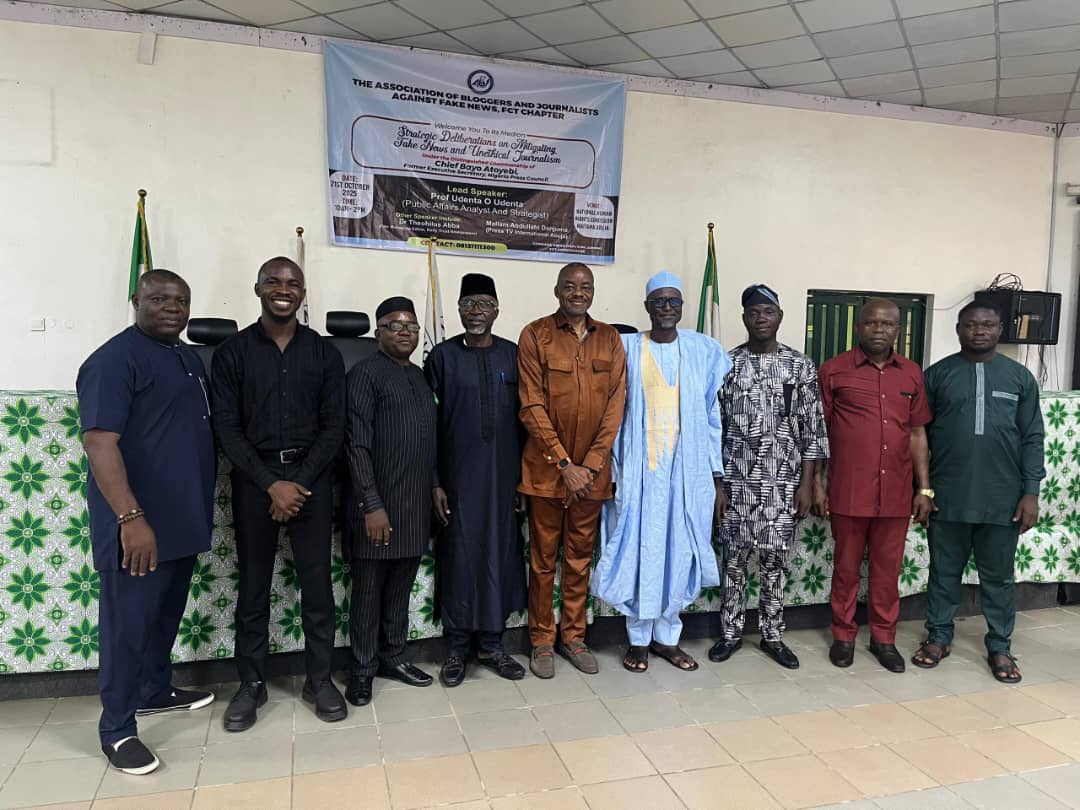
Delivering his welcome address, Comrade Obiora Orji, the FCT Coordinator of the Association, said the gathering was a call to action to rescue journalism from the encroachment of fake news, unethical reporting, and unchecked digital misinformation. “Fake news, otherwise referred to as false news,” he said, “has become a monster threatening professional integrity, national cohesion, and public trust.”
Recalling the murder of legendary journalist Dele Giwa in 1986 as a symbol of journalistic courage and ethical steadfastness, Orji lamented that today’s media ecosystem has been “overrun by untrained journalists, free content creators, and unverified social media publishers who pollute the public space with falsehood.”
He warned that the consequences of misinformation in a fragile democracy like Nigeria’s could be dire. “When falsehood becomes a mainstay in our news outlets, the very foundation of public confidence in journalism collapses,” he cautioned. Orji acknowledged the immense challenges faced by those who still uphold professional standards despite the lack of economic incentives, saying, “This maiden event demonstrates passion in action from our members, organisers, invited guests, and presenters — a tangible contribution from their time, energy, and expertise.”
The FCT Coordinator thanked the association’s National President, Comrade James Ezema, and Chairman, Board of Trustees, Dr. Victor Egharevba, for their leadership and support. He also expressed gratitude to Dr. Atoyebi, Prof. Udenta O. Udenta, Mallam Garba Abdullahi Mohammed, Dr. Theophilus Abbah, Chief Nwabeze Njoku, and Mr. Adebayo Bodrin for their solidarity, as well as to the Executive Secretary of the NHRC, Sir Tony Ojukwu (SAN), for providing the platform. “We must imbibe the knowledge shared here today and put it into practice to salvage our media constituency,” he concluded.
In his opening remarks, Dr. Bayo Atoyebi commended the association for pioneering a professional front against fake news, describing the effort as “timely and courageous.” He, however, urged the group to brace for challenges ahead, noting that sustaining such an initiative requires institutional engagement and discipline.
Quoting journalism scholar Professor Ralph Akinfeleye, Atoyebi said, “Those citizens who have the privilege of having a phone and put any information — whether true or false — on social media and call themselves journalists, are not journalists.” He maintained that bloggers and online content creators are effectively broadcasters and therefore must operate under the same ethical and regulatory frameworks as traditional media.
“Whether you like it or not, when you put items on social media, what you are doing is broadcasting. In fact, your coverage is often wider than that of conventional broadcasters,” he observed. He advised bloggers to align with institutions such as the Nigerian Press Council, National Broadcasting Commission, and the Nigerian Communications Commission, which regulate the media and telecommunications spaces. “By the time you build partnerships with these three institutions,” he said, “your job and your challenge will be half surmounted.”
Delivering his presentation on behalf of Dr. Abbah, Mr. Daniel Adaji introduced participants to the concept of “Information Disorder”, drawn from research and training materials by First Draft, BBC, Africa Check, and UNESCO. He identified three core categories — misinformation, disinformation, and malinformation — all of which represent varying degrees of false or harmful content circulating within the media ecosystem.
According to Dr. Abbah’s paper titled “Information Literacy as Antidote to Fake News”, fake news is not merely a media challenge but “a social and psychological epidemic, what the United Nations calls an infodemic — a disease of falsehood spreading uncontrollably through societies.” He explained that creators of disinformation often prey on human emotions and biases to manipulate public opinion. “People tend to believe content that confirms their existing beliefs or comes from familiar sources,” he said.
Citing examples such as doctored images, deepfake videos, and recycled news items presented as fresh stories, Abbah categorised forms of false content — including false connections, manipulated media, conspiracy theories, imposter content, and propaganda — all of which undermine trust in journalism. “The danger,” he warned, “is that falsehood, when repeated often enough, begins to sound like truth.”
He concluded that information literacy — teaching citizens how to critically assess the credibility of information — is the most sustainable solution. “The antidote to fake news is not censorship but education. Citizens must learn to question, verify, and think critically before sharing,” the paper emphasised.
In his paper titled “Ethics of Reporting in the Digital Age: Can Journalists and Bloggers Balance Free Speech with Responsibility?”, Alhaji Danjuma Abdullahi explored the interplay between press freedom and accountability. He defined journalistic ethics as “the compass of integrity guiding the journalist toward truth and away from harm.”
He outlined key ethical principles such as accuracy, objectivity, and confidentiality of sources, stressing that the credibility of journalism rests on factual reporting. “Falsehood has been known to confuse, to misguide, to damage reputations, to start fights, and generally to threaten law and order,” he said, quoting Joseph Pulitzer: ‘Put it before them briefly so they will read it, clearly so they will appreciate it, picturesquely so they remember it, and above all accurately so they will be guided by its light.’
Abdullahi argued that in the digital age, where nearly anyone with a smartphone can publish to millions, journalists and bloggers must recognise that freedom of speech carries a weight of responsibility. “Freedom of speech is a constitutional right, but it is not absolute. No responsible government will allow the spread of information that threatens national security, public safety, or morality,” he said.
He noted that the Cybercrimes Act of 2025 now provides a framework for addressing online abuses such as cyberstalking, identity theft, and cyberterrorism. “Be cautious and be professional,” he warned. “The government can get you whenever it wants to get you.”
Drawing from Western democratic experience, he reminded participants that even liberal societies have had to balance free speech with national interest. “John Locke, John Stuart Mill, and U.S. Justice Louis Brandeis all advocated for free expression, but even they recognised the need for limits to prevent harm,” he said, urging Nigerian journalists to “balance liberty with responsibility.”
At the end of the deliberations, participants agreed that the survival of Nigeria’s democracy depends on responsible media conduct, ethical reawakening, and a stronger commitment to truth. The communique underscored the need for partnership among journalists, bloggers, government institutions, and the public to counter the growing menace of false information.
In his closing remarks, Comrade Obiora Orji reaffirmed the association’s commitment to promoting truth and ethical journalism. “The war against fake news is not a media war; it is a moral, social, and national war for truth, justice, and stability,” he declared to resounding applause.
As Nigeria grapples with the digital revolution’s complex implications for governance and public discourse, the Abuja event signaled a new movement toward reclaiming the integrity of information — and with it, the soul of journalism itself.


